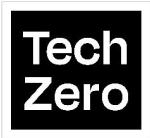RESULTS
Marks & Spencer (M&S) was able to conduct a science-based Life Cycle Assessment (LCA) study across 20 products with unprecedented efficiency. Leveraging advanced technologies such as AI and machine learning, CarbonBright’s platform provided M&S with more precise and data-driven assessments of various aspects of the life cycle model, significantly reducing the time required compared to conventional approaches which rely on manual data collection. Moreover, the study conducted was fully compliant with industry standards, including ISO 14040, 14044, and 14067, ensuring the reliability and credibility of the findings. The study included a comparative analysis of multiple ‘average use scenarios’ for each product pair, determining breakeven points for using reusable packaging. Results showed that just two reuses of an aluminum container revealed environmental benefits, showcasing a lower overall carbon footprint and validating the circularity model. These findings emphasized the environmental advantages of M&S’s refill program, supporting their sustainability goals.
Through this collaboration, CarbonBright demonstrated its ability to revolutionize sustainability practices within the Consumer Packaged Goods Industry. By enabling real-time emissions calculation, facilitating credible decarbonization communication, and identifying actionable areas for emission reduction, CarbonBright’s platform empowered M&S to make informed decisions and drive progress towards a more sustainable future.



